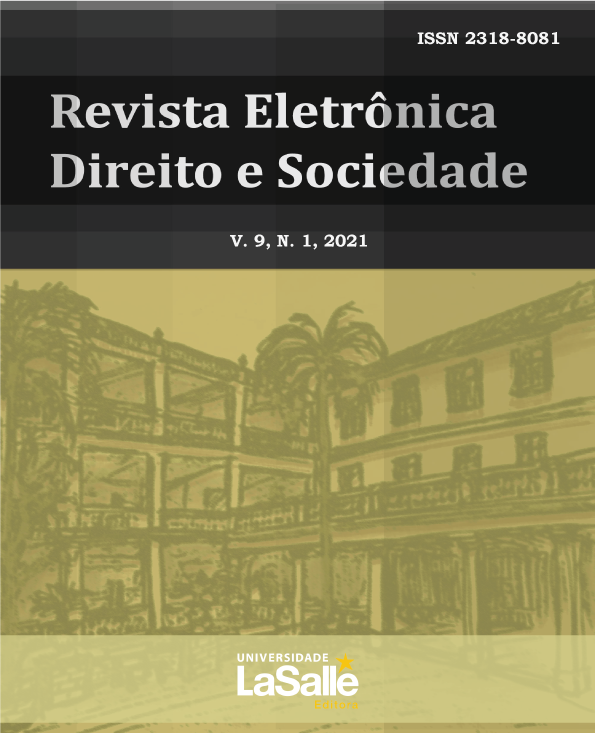Custody hearings in Brazil: challenges for implementation
DOI:
https://doi.org/10.18316/redes.v9i1.7118Keywords:
Custody Hearings, Mapping, Legislative Innovation, Police Violence, Temporary PrisonersAbstract
The purpose of this article is the exploratory analysis of the literature on custody hearings in Brazil. Initially, it discusses the need to adapt the Brazilian legal system to international conventions that provide for the prompt presentation of the prisoner to the judicial authority. Then, the focus of the work is on research that evaluates custody hearings as a mechanism for coping with police violence at the time of arrest. Finally, it presents the main findings of research that discuss the impact of custody hearings on the contingent of pretrial detainees in Brazil. These challenges are inferred from Resolution n. 213/2015 of the CNJ, the recent provision in the code of criminal procedure and the grounds for the decision, on a precautionary basis, in the Failure to comply with Fundamental Precept (ADPF) n. 347 that determined the implementation of custody hearings in Brazil. The study methodology is bibliographic, with a focus on academic research and empirical data provided by official bodies on the evolution of the Brazilian prison population.
Downloads
Published
Issue
Section
License
Authors who submit their manuscripts for publication in the “REDES” Magazine agree to the following terms:
The authors claim to be aware that they retain copyright by giving “REDES” the right to publish.
The authors declare to be aware that the work submitted will be licensed under the Creative Commons Non-Commercial Attribution License which allows article sharing with acknowledgment of authorship and publication in this journal.
The authors declare to be aware that by virtue of the articles published in this journal have free public access.
The authors declare, under the penalty of the law, that the text is unpublished and original and that they are aware that plagiarism has been identified, plagiarized authors will be informed - willingly, to take legal action in the civil and criminal sphere - and, plagiarists will have their access to the magazine blocked.
The authors state that - in case of co-authoring - all contributed significantly to the research.
Authors are obliged to provide retractions and (or) corrections of errors in case of detection.
The authors are obliged not to publish the text submitted to “REDES” in another electronic journal (or not).
The Electronic Journal Law and Society - REDES - is licensed under a Creative Commons License. Attribution-NonCommercial 4.0 International.Based on work available at "http://revistas.unilasalle.edu.br/index.php/redes/about/submissions#copyrightNotice".
Permissions in addition to those granted under this license may be available at http://creativecommons.org/.

